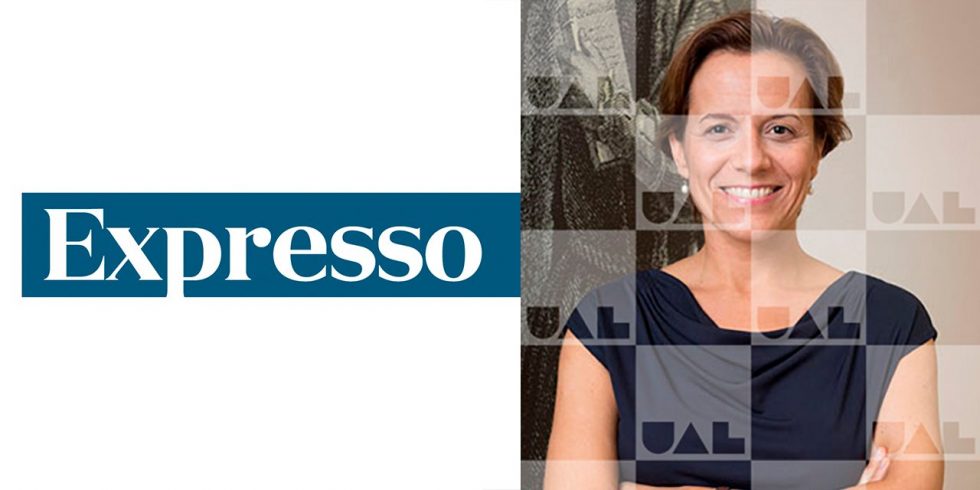
WAR IN UKRAINE
MEPs call for “optional parliamentary intervention” in Ukraine
Parliament’s intervention is “optional”.
“Any materialisation of this putative threat would be immediately attributed to the Russian state,” says
President Obama
Neither Pedro Abrunhosa seeks “the fame he already has”, nor has he exaggerated. Researchers
political science and international relations researchers believe that the Russian embassy did not
the Russian embassy did not “interfere in national sovereignty”, but attacked the freedom of expression of a democratic country.
freedom of expression in a democratic country. Interviewed by Expresso, the
experts say that taking the matter to parliament could exacerbate a situation
situation that wants to be “circumscribed”.
Catarina Maldonado Vasconcelos
Journalist
Big Brother is watching, and Pedro Abrunhosa is just a dot caught by
The ‘Big Brother’ is watching, and Pedro Abrunhosa is just one point caught by the immense Russian radar, which has already spread
United States. From words to meddling in elections and alleged poisonings, the
“Russian proactivity” began even before the invasion of Ukraine. In Bulgaria, Lithuania, Slovenia
Lithuania, Slovenia, Albania, Germany, the United Kingdom, Greece and
Italy, Moscow has already made use of its rhetoric to try to impose authority. The Russian
ambassador in Italy sent an intimidating email to MPs on the Foreign
Foreign Affairs and Defence Committee, saying that sanctions against Russia “will not
will not go unanswered”. In Greece, the Russian embassy even dictated on social
social media the TV channel Greeks should watch if they wanted to receive
“objective” information, and in Bulgaria, the Russian ambassador eventually had to
apologise to the country’s prime minister after she compared the invasion of
Ukraine to the liberation process of Bulgaria that took place 144 years ago. Although,
as the British and American intelligence services have already explained, the spying capacity has been
Russia’s espionage capacity was diminished and its ability to influence
the expulsion of Russian diplomats and other professionals, the
the “web” of so-called “interesting” data collection was not totally interrupted.
Luísa Godinho, PhD in Political Science from the University of Geneva and associate professor at the
associate professor at the Autonomous University of Lisbon, recalls that, in Portugal, the
the Russian embassy’s reaction to the anti-war (and anti-Putin) words spoken by Pedro
Abrunhosa during a concert in Águeda “is part of this systematic strategy
of affirming and defending Russia’s position in the face of critical attitudes, going as far as
intimidation of those involved”.
THE THREATS: DOES PEDRO ABRUNHOSA HAVE REASON TO FEAR?
20 July 2022. “Mr Abrunhosa”, as the Russian embassy – distancing itself
but pointing its finger at him, you should know that “no ignoble provocation
no ignoble provocations will go unanswered”, because “your words, unworthy of the man of
who represents the country, who is openly demonstrating against any kind of hatred and
against any kind of hate and discrimination, have been heard”. Two days later, the
artist characterizes the intervention of the diplomatic body as “unprecedented and very
worrying”. Is there a veiled threat evident in the Russian embassy’s communiqué?
The subliminal message that refers to an unknown “answer” validly potentiates
What is the reason for Pedro Abrunhosa’s fear and indignation?
Rui Henrique Santos, a researcher at the Portuguese Institute of International Relations
(IPRI) at Lisbon’s Universidade Nova, believes that the embassy’s letter “was
just a position taken by Russia, which has happened in all the European capitals
European capitals or in all places where there are artistic, political, cultural or social
or social demonstrations that Moscow feels are against what they call their “special military operation”.
special military operation'”. There is a very latent concern to “warn that [the
Russian political representatives] are on the alert”, but “that actions may ensue
against Pedro Abrunhosa or other people… no”, ponders the researcher.
But ignorance stimulates the imagination, and a manifestation of intentions without clarifying
without clarifying its content can indeed motivate multiple interpretations,
as André Pereira Matos, coordinator of the master’s and degree courses in
international relations and diplomacy at the University of Portucalense. “In fact, there
there is no explicit threat in the communiqué from the Russian embassy. However, the
the tone it uses to say that ‘their words have been heard’ and that consequences will be drawn
consequences, without identifying them or even their nature – judicial, for example
-, can only be interpreted as a more veiled form of an intention
which, being unknown, can be intimidating, precisely because of the lack of knowledge
in which it keeps us as to the possible consequences”.
It is an argument that Luísa Godinho endorses. The Russian embassy says in a
that “the ‘ignoble provocations’ – as the words of Abrunhosa are qualified
Abrunhosa’s words – will not go unanswered, without, however, indicating what it might be,
insinuating a possibility of retaliation, which naturally seeks to cause
fear”. This language, “used in an alien, sovereign and democratic country, is
totally unacceptable”, says the researcher, who also considers the whole content to be
intimidating, because it raises, at least, the hypothesis of a lawsuit against the
singer.
André Pereira Matos believes that, for the visibility and public exposure that he has and that
“exponentiated with this controversy”, the artist and author of “Maybe F****” will not have
fear. “Any materialisation of this putative threat would be immediately attributed
the Russian State and would give rise to a very embarrassing diplomatic situation, to say the least,” the
“Any materialisation of this putative threat would be immediately attributed to the Russian state and would give rise to a very embarrassing diplomatic situation, to say the least”, the researcher consolidates.
PEDRO ABRUNHOSA EXAGGERATED?
Not when it comes to freedom of expression, researchers argue. Rui
Henrique Santos explains that the singer’s reaction must be contextualised in the light of a democratic and sovereign
sovereign democratic state and taking into account the knowledge already acquired about the
Russian regime in force. “From our point of view as Westerners, given the freedom of
of expression and freedom of opinion, which are not really given in Russia, the
the space given to intellectual creativity must be maintained and expanded,” stresses the
researcher. “There is a history of censorship in Russia – to Pussy Riot and other groups –
who cannot freely say what they think”, so “it was not exaggerated, nor
Pedro Abrunhosa went looking for the fame he already has”.
“Within a context in which on the one hand there are the artists that go to
Avante!, with plenty of criticisms being made, and, on the other side, the artists who are
against the war and Mr. Putin, what Pedro Abrunhosa did was well done”, underlines the
professor. Still, and on this idea, all researchers agree:
it is exaggeration [of the singer] to allege “interference in national sovereignty”.
André Pereira Matos also refers to an occasion when, after a conversation with
Marques Mendes, Pedro Abrunhosa uttered these words: “Parliament has to
because it is an interference in national sovereignty”. This accusation is
“excessive”, according to the researcher. “The Russian state understood that it should issue a
statement, in the face of alleged complaints from citizens it represents, and it did so with a
typical tone of an autocratic state that is not embarrassed either to create some diplomatic tension or
diplomatic tension or to take a position on behaviour which is, at the very least
questionable as to respect for domestic and international norms regarding
freedom of expression.” Interference in Portuguese sovereignty would be confirmed, instead
instead, “if there were Russian influence, for example, in a court case against the
singer or some kind of conditioned response by the Portuguese State, which
was clearly not the case”.
The professor says the presumed attempt at intimidation is characteristic of the rhetoric
of an “autocratic regime” that disregards “fundamental rights and freedoms
as is the case with freedom of expression”. The international relations specialist
says that countries with this type of political regime are “traditionally very sensitive to any form
to any form of public demonstration of opposition to their national identity, their institutions
national identity, its institutions or political decisions”.
While not denying that there is a “disproportionately aggressive and accusatory tone”
in the communiqué from the Russian diplomatic entity, André Pereira Matos makes a
broader diagnosis. “The internal political repression in Russia is, at least part
of it, known and is a common feature of all non-democratic regimes. Therefore,
this position is expected, it is coherent with the regime in force and with the
It’s also consistent with the aggressiveness with which the country deals with any form of opposition. Rui Henrique
This is the kind of language used by Russia, even before the war.
war.” There is an attempt to show that Russia can do more than what
it is possible for it to do today.
The issue becomes serious for two reasons, Luísa Godinho systematizes: “On the one hand,
on the one hand, because this is an ordinary act of freedom of expression, a fundamental right.
fundamental right. On the other hand, because it includes the formulation of threats, which is, indeed
This is inadmissible in a democratic state under the rule of law”.
Even so, Rui Henrique Santos asserts that “from the global point of view, it does not have the
It is an issue limited to the Portuguese reality,
but which has been repeated and is being repeated in several places in Europe and the United States”.
TO EACH HIS OWN PLACE: THE ROLE OF THE EMBASSY AND ORGANS OF NATIONAL SOVEREIGNTY
The “assiduously intimidating and meddling” reaction strategy of the
Russian embassies to statements and acts that take place in other countries is an indelible mark
The Russian embassy’s strategy of “assiduously intimidating and meddling” is an indelible mark of the world today, but Luísa Godinho recalls that “an embassy serves to
the interests of one state to another, so it is admissible that it expresses itself in the face of criticism
It is therefore permissible for it to speak out when criticism is made in public against the State that it represents. No
It has “no right to intimidate, which is unacceptable and intrusive in the
This is unacceptable and intrusive in the internal affairs of another country’.
the Russian regime is thereby demonstrating its difficulty in dealing with democratic principles”.
And, having said this, what are the appropriate responses, and to whom should they belong? The three
The Russian government, which is the only country in the world that has ever seen a
Ministry of Foreign Affairs. “Just as the Russian embassy had the right to
the words directed against one of its institutions, the Portuguese State also has the right to
Just as the Russian Embassy had the right to take a position on the words directed against one of its institutions, so the Portuguese State has the right to manifest itself, in this case, in a manner consistent
in a manner consistent with its political regime, its democratic Constitution and its international
international obligations to protect Human Rights, defending its citizens and, above all
citizens and, above all, the environment of freedom of expression, especially in the
culture and the arts, since it is in these areas that they are exercised most freely
most free”, said André Pereira Matos.
If Luísa Godinho considers it “optional” for Parliament to take a position,
Rui Henrique Santos believes that it would not be worthwhile to inflate the situation. “The Ministry of Foreign
of Foreign Affairs, through diplomatic channels, made it known to
It’s not just a question of the fact that it’s not the right way to go about it. Anything more than that
would be to politically exaggerate a matter which does not have the importance that one
that one wants to give it.”
“Pulling the Assembly of the Republic into this matter would not be very advantageous, because
it would put some of the Parliament’s positions even more in the limelight,” adds the
It’s a good thing that we’re here.
Rui Henrique Santos speaks of a circumscribed problem, in which it must be considered
In international politics, we usually divide up what is going on in the international arena,” he said,
In international politics, we usually divide what happens on several levels: relations between people
States and the international system. This is a situation at the level of individuals”. Luísa
Godinho also analyses in the same vein, that “the singer has publicly expressed
his opinion on the war in Ukraine, and, obviously, he can only represent himself and not the
himself and not the Portuguese State”.
POSSIBLE DIPLOMATIC CONSEQUENCES BETWEEN THE TWO COUNTRIES
“The ‘ball’ is now in the Russians’ court, so everything will depend on their next
The ‘ball’ is now in the Russians’ court, so everything will depend on their next steps”, Pereira Matos added. Despite the fact that diplomatic relations have almost ceased
the invasion of 24 February, Portuguese researchers do not exclude that the incident
exclude that the incident has caused scratches to the already tense atmosphere between Russia
and Portugal. “So far, as far as is known, it has created some uneasy
diplomatic discomfort between the two countries, but which, in a war scenario, is not
particularly tense”, comments André Pereira Matos. The Portuguese aid to Ukraine
can be interpreted as more offensive to Russian interests than a
It is possible,” he said, “that there is a possibility that there will be a conflict. However, “it is possible that there is a
tension may also escalate due to these accumulated variables”, admits the researcher.
researcher.
Luísa Godinho also leaves it open: “All the acts of states are reflected in their relations.
their relations. The question is to know at what level, but only the future will tell. The current context is
The current context is obviously too complex for conclusive answers at this point in time”.







